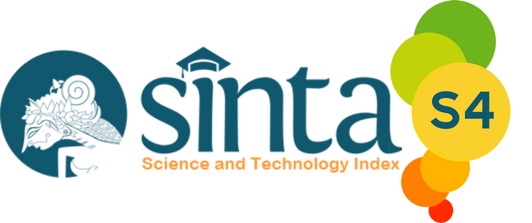Examining the Impact of the Solo-Yogyakarta Toll Road Construction on Farmers’ Assets and Psychological Well-being
Abstract
This study investigates the psychological impact of farmers’ sentiments on land conversion associated with the national strategic project for constructing the Solo-Yogyakarta toll road, focusing on the asset aspects of farmers’ families. Employing descriptive and survey approaches, supplemented by in-depth interviews to enhance the research design, the study utilized a random sampling method with a proportional cluster, encompassing a sample size of 258 participants. Data collection was conducted through questionnaires, and analysis involved cross-tabulation and chi-square descriptive analysis to examine relationships between factors. The findings reveal that farmers experience psychological distress, particularly sadness, due to the change in land use and the option to sell their land. Farmers’ attitudes toward compensation procedures were generally neutral. Overall, the study highlights the significant psychological impact of land conversion, predominantly manifesting as sadness among farmers. The research underscores the need for policy development to establish support programs by relevant entities, ensuring that compensation funds are effectively utilized to generate new income sources for the affected farmers.
Keywords
Full Text:
PDFReferences
Acikgoz, C. (2011). Renewable energy education in Turkey. Renewable Energy, 36(2), 608–611. https://doi.org/10.1016/j.renene.2010.08.015
Ayu Andani, I. G., Geurs, K., & Puello, L. L. P. (2019). Effects of toll road construction on local road projects in Indonesia. Journal of Transport and Land Use, 12(1), 179–199. https://doi.org/10.5198/jtlu.2019.1258
BPS. (2019). Ekonomi Indonesia Triwulan III 2019. Badan Pusat Statistik.
Berawi, M. A., Miraj, P., Berawi, A. R. B., Gunawan, & Mikaelse, K. (2018). Improving toll road feasibility: Route development and cost estimation. AIP Conference Proceedings, 1977, 040002. https://doi.org/10.1063/1.5042972
Kuang, F., Jin, J., He, R., Ning, J., & Wan, X. (2020). Farmers’ livelihood risks, livelihood assets and adaptation strategies in Rugao City, China. Journal of Environmental Management, 264, 110463. https://doi.org/10.1016/j.jenvman.2020.110463
Lansing, J. S., Kremer, J. N., Gerhart, V., Kremer, P., Arthawiguna, A., Surata, S. K. P., Suprato, S., Suryawan, I. B., Arsana, G. G., Scarborough, V. L., Schoenfelder, J., & Mikita, K. (2001). Volcanic fertilization of Balinese rice paddies. Ecological Economics, 38(3), 383–390. https://doi.org/10.1016/S0921-8009(01)00173-2
Makbul, Y., Faoziyah, U., Ratnaningtyas, S., & Kombaitan, B. (2019). Infrastructure development and food security in Indonesia: The impact of the trans-Java toll road on rice paddy farmers’ desire to sell farmland. Journal of Regional and City Planning, 30(2), 140–156. https://doi.org/10.5614/jpwk.2019.30.2.4
Nabavi-Pelesaraei, A., Rafiee, S., Mohtasebi, S. S., Hosseinzadeh-Bandbafha, H., & Chau, K. wing. (2017). Energy consumption enhancement and environmental life cycle assessment in paddy production using optimization techniques. Journal of Cleaner Production, 162, 571–586. https://doi.org/10.1016/j.jclepro.2017.06.071
Naufal, M. F. A., & Husodo, J. A. (2022). Legal aegis for communities affected by Solo-Jogja toll road construction. International Journal of Business, Economics and Law, 26(1), 144–148. Retrieved from https://ijbel.com/wp-content/uploads/2022/04/IJBEL26.ISU1_257.pdf
Parker, I. D., Facka, A. N., Catanach, T. A., & Lyons, E. K. (2018). The benefits of evolution education for natural resources managers. Perspectives in Ecology and Conservation, 16(1), 12–16. https://doi.org/10.1016/j.pecon.2017.11.003
Ramadani, T. (2019). Pengelolaan komunikasi publik. Jurnal Good Governance, 15(1), 11–27. https://doi.org/10.32834/gg.v15i1.42
Song, J., Zhao, Y., Jin, L., & Sun, Y. (2018). Pareto optimization of public-private partnership toll road contracts with government guarantees. Transportation Research Part A: Policy and Practice, 117, 158–175. https://doi.org/10.1016/j.tra.2018.08.019
Susanto, N. (2019). Public (dis)engagement in toll road project: A case study from Indonesia. JKAP (Jurnal Kebijakan dan Administrasi Publik), 23(1), 77. https://doi.org/10.22146/jkap.43994
Teo, H. C., Lechner, A. M., Walton, G. W., Chan, F. K. S., Cheshmehzangi, A., Tan-Mullins, M., Chan, H. K., Sternberg, T., & Campos-Arceiz, A. (2019). Environmental impacts of infrastructure development under the belt and road initiative. Environments - MDPI, 6(6), 72. https://doi.org/10.3390/environments6060072
Widodo, B., & Winarti, W. (2021). Governmental domination in toll road development (A study on social effect of toll road development in Boyolali Regency). https://doi.org/10.4108/eai.21-10-2020.2311857
Wulfram I, & Ervianto. (2017). Tantangan pembangunan infrastruktur dalam proyek strategis nasional Indonesia. Simposium II UNIID 2017, 2(1), 98–103. Retrieved from https://conference.unsri.ac.id/index.php/uniid/article/view/588
Yu, M., Chen, Z., Long, Y., & Mansury, Y. (2022). Urbanization, land conversion, and arable land in Chinese cities: The ripple effects of high-speed rail. Applied Geography, 146, 102756. https://doi.org/10.1016/j.apgeog.2022.102756
Refbacks
- There are currently no refbacks.






